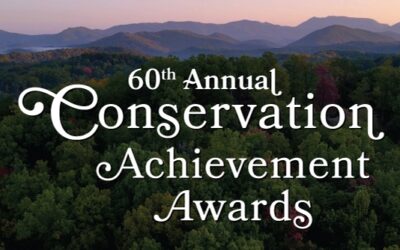Press release published by Southern Environmental Law Center
Clearer, more consistent clean water protections for streams, fisheries, and wetlands that provide habitat and protect communities from storms are at stake.
CHAPEL HILL, N.C.—On behalf of conservation and outdoor organizations, the Southern Environmental Law Center filed in the U.S. District Court for the Eastern District of Kentucky to defend a rule restoring longstanding federal Clean Water Act protections against pollution and destruction of streams, wetlands, and other critical waterways that help supply drinking water and fisheries, and safeguard wildlife and our communities. In the case, the state of Kentucky and industry groups seek to block the science-based rule from taking effect—a move that could deprive the families, hunters, anglers, and other outdoor enthusiasts who use and rely on streams, rivers, and wetlands throughout the United States of clear, strong federal clean water protections.
The Southern Environmental Law Center is representing the Kentucky Resources Council, Florida Wildlife Federation, Izaak Walton League of America, Minnesota Division of the Izaak Walton League of America, National Wildlife Federation, North Carolina Wildlife Federation, South Carolina Wildlife Federation, and Tennessee Wildlife Federation in defending the rule.
“Clean water protections are needed to guard our nation’s waters against pollution so we can all use them for fishing, swimming, and as sources of drinking water,” said Kelly Moser, senior attorney and leader of the Clean Water Defense Initiative at the Southern Environmental Law Center, which is representing the groups in court. “The lakes, streams, and wetlands that this rule protects are essential to the health of families, wildlife, and communities across America.”
Healthy fish and wildlife depend on clean water. Valuable waterways threatened by the industry lawsuit support fishing, hunting, and outdoor recreation, as well as the jobs these activities sustain when millions of Americans head into the field every year. The money that hunters, anglers, and other outdoor enthusiasts spend supports everything from major manufacturing to small businesses in communities across the country. The economic benefits of hunting, fishing, and outdoor recreation—which total hundreds of billions of dollars each year—are especially pronounced in rural areas, where money brought in during fishing, hunting, and tourism seasons can keep small businesses operational for the entire year. The outdoor recreation economy supports 7.6 million jobs and $788 billion in consumer spending—and it depends on clean water.
In addition to being vital for fisheries and water quality, wetlands help protect many communities facing more frequent and intense flooding as a result of climate change.
The rule that Kentucky and industry groups are challenging restores longstanding Clean Water Act protections that have been in place for decades through bipartisan practice, which the prior administration’s now-vacated “Navigable Waters Protection Rule” stripped from thousands of stream miles and millions of acres of wetlands, putting American communities and water supplies at risk.
The challenged rule’s protections for streams, wetlands, and lakes—including drinking water sources—reflect 50 years of bipartisan practice and clear science. It is being challenged by the Commonwealth of Kentucky, the United States Chamber of Commerce, the Portland Cement Association, the Georgia Chamber of Commerce, Kentucky Chamber of Commerce, Associated General Contractors of Kentucky, and Home Builders Association of Kentucky.
Statements from the conservation and outdoor organizations represented by SELC in the case follow.
“As a nation, we have long understood the value of healthy and abundant water. For the past 40-plus years, our citizens and public policies have recognized that in order to have healthy and abundant water we must fix the problems we have created, namely by reversing the destruction of our country’s streams, rivers, and wetlands,” said Mike Butler, CEO, Tennessee Wildlife Federation. “Healthy and abundant water begins by supporting the new ‘Waters of the United States’ rule, and not allowing misguided efforts to dismantle those clean water protections to prevail.”
Read the rest of the statements in the full press release.
Featured photo by John Rudy




